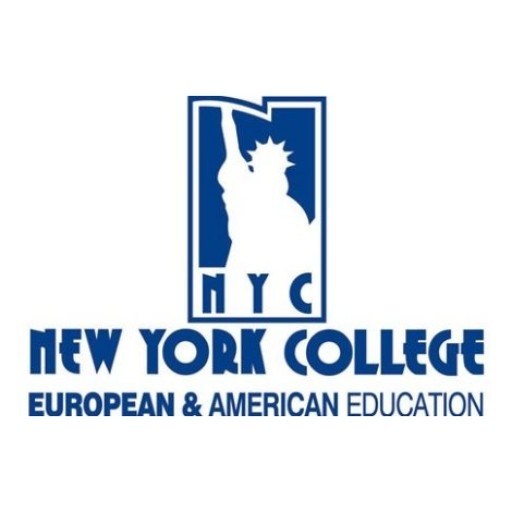Program Description:
The Bachelor of Science in Biomedical Science at Rutgers University-Camden provides students with a comprehensive foundation in the biological and physical sciences necessary for a career in the biomedical field. This rigorous undergraduate program is designed to prepare students for graduate studies, professional school, or employment in healthcare, research, and related industries. Students will gain in-depth knowledge of human biology, anatomy, physiology, microbiology, biochemistry, and genetics, along with practical laboratory skills essential for scientific research and diagnostic applications.
Throughout the program, students are encouraged to develop critical thinking, problem-solving, and communication skills through coursework, laboratory exercises, and research projects. The curriculum emphasizes an integrated understanding of the biological sciences while providing opportunities for experiential learning through internships, research collaborations, and community engagement. Students may also benefit from access to modern laboratories and research facilities that enhance their hands-on experience and prepare them for the challenges of post-graduate careers.
The program aims to foster an interdisciplinary approach, bridging foundational science with emerging technologies and healthcare innovations. In addition, students will learn about ethical considerations and public health issues related to biomedical sciences, equipping them to contribute responsibly to advancements in medicine and healthcare delivery. Career pathways for graduates include roles in medical research, clinical laboratories, pharmaceuticals, biotechnology companies, healthcare administration, or pursuing advanced degrees such as medicine, dentistry, pharmacy, or graduate research programs.
Rutgers University-Camden's supportive academic environment, experienced faculty, and strong industry connections help students succeed academically and professionally. With an emphasis on both theoretical knowledge and practical application, the Bachelor of Science in Biomedical Science prepares graduates to become innovators, researchers, and professionals dedicated to improving health and quality of life globally.
The Bachelor of Science in Biomedical Science at Rutgers University-Camden offers a comprehensive curriculum designed to prepare students for careers in healthcare, medical research, and related fields. The program provides a solid foundation in the fundamental biological and physical sciences, including courses in molecular biology, genetics, biochemistry, microbiology, and physiology. Students gain practical laboratory skills, critical thinking abilities, and an understanding of human health and disease mechanisms through hands-on experiments and research opportunities.
In addition to core scientific coursework, the program emphasizes interdisciplinary learning, integrating concepts from chemistry, mathematics, and health sciences to develop well-rounded graduates capable of addressing complex biomedical challenges. Students are encouraged to participate in internships, research projects, and community outreach initiatives that enhance their real-world experience and professional development.
The curriculum also includes courses in ethics, regulatory affairs, and healthcare systems, providing students with a broader understanding of the biomedical industry and preparing them for future graduate studies, medical school, or careers in research and development. Rutgers-Camden supports students with dedicated advising, state-of-the-art laboratories, and access to advanced research facilities.
Graduates of the Biomedical Science program are equipped with the scientific knowledge, technical skills, and professional competencies necessary for success in a rapidly evolving healthcare landscape. The program aims to foster critical inquiry, innovation, and a commitment to improving health outcomes through scientific discovery and technological advancement. Whether pursuing graduate education or entering the workforce directly, students leave Rutgers-Camden prepared to make meaningful contributions to biomedical sciences and human health.
Program Requirements: Biomedical Science Bachelor of Arts or Bachelor of Science Degree
The Biomedical Science program at Rutgers University-Camden prepares students for careers in healthcare, research, and related fields by providing a comprehensive foundation in biological and physical sciences. To fulfill degree requirements, students must complete a total of 120 credit hours, including core coursework, electives, and general education requirements. The core curriculum emphasizes fundamental biological sciences such as biology, chemistry, and physics, along with specialized courses in anatomy, physiology, microbiology, and molecular biology. Students are required to complete courses like General Biology I & II, General Chemistry I & II with labs, Organic Chemistry I & II with labs, and courses in biochemistry, genetics, and cell biology.
In addition to science courses, students must complete mathematics courses, typically Calculus I or higher, to develop quantitative skills essential for data analysis in biomedical research. The program also includes courses in English composition, humanities, and social sciences to ensure well-rounded education and communication skills. Laboratory work and research projects form a vital part of the curriculum, allowing students hands-on experience in experimental techniques, data analysis, and scientific writing.
Students pursuing the Bachelor of Science degree are often encouraged to engage in internships or research assistantships to gain practical experience. For graduation, students must also complete a senior capstone project or thesis, demonstrating their understanding of biomedical concepts and research methodologies. Successful completion of a comprehensive set of examinations and maintaining a minimum GPA as specified by the university are mandatory.
Pre-professional students interested in continuing to medical school or graduate research programs should consult academic advisors to tailor their course sequences accordingly. The program emphasizes the development of critical thinking, problem-solving skills, and ethical considerations in biomedical research and healthcare. Overall, the Biomedical Science program at Rutgers-Camden aims to produce graduates equipped with the knowledge, skills, and ethical grounding necessary to excel in various biomedical fields or pursue advanced degrees.
The Biomedical Science and Business Administration programs at Rutgers University-Camden offer students a range of financing options to support their educational pursuits. Tuition fees for undergraduate programs vary depending on residency status, with in-state students paying approximately $15,000 per year and out-of-state students paying around $30,000 annually. Graduate students may expect different fee structures, which typically range from $20,000 to $35,000 per year. Rutgers University-Camden provides several financial aid opportunities, including federal and state grants, scholarships, and work-study programs.
Students are encouraged to complete the Free Application for Federal Student Aid (FAFSA) to determine eligibility for federal aid programs such as the Pell Grant and federal student loans. The university offers merit-based scholarships, which are awarded based on academic achievement and extracurricular accomplishments. Additionally, need-based grants are available for qualifying students to reduce financial burdens. For students interested in employment, the university’s work-study program provides part-time jobs on campus, allowing students to earn wages while gaining professional experience.
Rutgers University-Camden also features specialized scholarship programs for students in health sciences and business administration. External scholarship opportunities from private foundations and organizations are also accessible, and students are advised to research and apply early to maximize their chances. Payment plans are available to help spread out tuition costs over the semester, making education more affordable. Moreover, some students may qualify for assistantships or fellowships that provide financial support in exchange for research or teaching duties.
The university’s financial aid counselors assist students in understanding available options and navigating the application process. They also advise on loan management and repayment strategies to ensure responsible borrowing. Additionally, students enrolled in the programs are provided with resources for budgeting and financial planning to help manage their overall educational expenses effectively. Overall, Rutgers University-Camden offers a comprehensive range of financing studies designed to make education accessible and affordable for its students in Biomedical Science and Business Administration programs.
The Bachelor of Science in Biomedical Science at Rutgers University-Camden is designed to prepare students for careers in health-related fields, biomedical research, and related industries. The program offers a comprehensive curriculum that covers essential topics such as human anatomy and physiology, cell biology, genetics, microbiology, and biochemistry. Students gain practical laboratory skills through hands-on experiments and research projects, fostering critical thinking and problem-solving abilities essential for medical, dental, veterinary, and graduate school applications.
This degree program emphasizes a strong foundation in biological sciences while also integrating courses in mathematics, chemistry, and social sciences to promote a well-rounded education. Specializations or electives allow students to tailor their academic experience toward particular interests such as neuroscience, molecular biology, or public health. The curriculum is designed to meet prerequisites for advanced study in medical schools or graduate programs, providing advising and support services to help students select appropriate coursework and explore internships or research opportunities.
Rutgers-Camden's location offers students access to partnerships with regional hospitals, clinics, research institutes, and biotech companies, providing valuable experiential learning opportunities. The program also encourages participation in undergraduate research projects, which can lead to presentations at scientific conferences or publications. Additionally, career development services are available to assist students in resume writing, interview preparation, and exploring postgraduate education options.
Graduates of the Biomedical Science program are well-equipped to pursue further education or enter the workforce directly. Many students go on to attend medical, dental, or pharmacy schools, while others find employment in clinical laboratories, pharmaceutical companies, healthcare administration, or biotechnology firms. The program aims to develop knowledgeable, skilled, and ethical professionals who can contribute to advances in medicine, healthcare, and biomedical sciences.
Overall, the Rutgers-Camden Biomedical Science program combines rigorous academics, practical training, and professional development to prepare students for successful careers in the rapidly evolving biomedical field.









